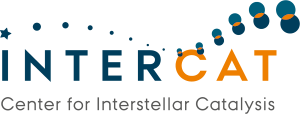
Image by Robert Fawcett in fineartamerica
The first piece of advice you will receive when planning to apply for a graduate degree is to never start your essays with cliché childhood reminiscences about your love for science and academia—however truthful they might be. Thankfully, I have already been accepted into a PhD program, and so I reserve the right to this little indulgence: since I can remember, natural sciences have always been my passion, and research has always been my purpose. Over the years, this very precocious—and, honestly, a little unsettling—certitude about what I wanted my whole career to be resulted in an accumulation of long hours imagining what my life would look like at each step of this journey. However, not even in my most dystopian Orwellian reveries could I have imagined that my PhD would start during the worst global-health crisis of the last century, and that I would just have to deal with it.
I applied for and was offered a position to work as a PhD candidate at Leiden University, as a member of the Laboratory for Astrophysics and as a part of Intercat. For my doctorate, I will be exploring the formation of complex organic molecules in space through laboratory experiments on interstellar ice analogues. Consequently, most of my time during the next four years will be spent either thinking about or conducting experiments on SURFRESIDE3, a really sophisticated setup that requires specialised training and, naturally, in-person handling of the machinery. Still in Brazil, I find myself unable to travel to the Netherlands due to the pandemic situation, and therefore I am faced with the challenge of trying to become acquainted with the setup without being able to actually handle it.
“Augean task” would be an understatement. There are no guidelines as to how to start any PhD from over 9000 km away, let alone a lab-oriented one. Besides an extensive reading list comprising most—if not every—work previously done with SURFRESIDE3, there is not really an obvious way to take profit of this restless waiting stage. We have to be creative. Last week, my daily supervisor took me on a virtual tour of the setup, using his laptop camera to guide me through the experiments he was conducting. It was surprisingly fruitful to be “present” while the first Reflection-Absorption Infrared spectra were obtained from the ice, which fuelled me with excitement for the rest of the week. After the meeting, I felt reassured that I was on the right track.
This pandemic is a burden that will forever remain in the memories of those who survive it. Being situated in one of the worst hotspots of Coronavirus in the world, and under the authority of less-than-ideal political figures that refuse to acknowledge reality, languish and apathy regrettably beckon. Still, small pleasurable moments such as my virtual rendezvous with SURFRESIDE3 are the breath of fresh air that can encourage us to keep looking forward. As Leo Tolstoy once said, life does not stop, and we indeed need to live. So we keep on living, and doing our best to navigate this pandemic while trying to get to the other side of the Atlantic—occasionally writing blog posts in the meantime.

Reflexão perfeita!
Parabéns! Colocações excelentes e um texto muito bem escrito.